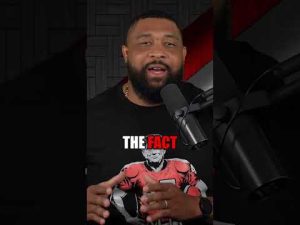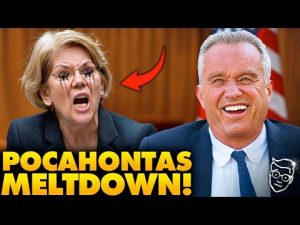In today’s polarized political landscape, it’s clear that free speech is under attack—particularly for those who dare to hold conservative views. Recently, Candace Owens found herself named “Anti-Semite of the Year” by a watchdog group aptly named Stop Anti-Semitism. This bizarre accolade illustrates the absurd lengths to which some will go to suppress dissenting opinions and stifle open debate. Instead of engaging in healthy discourse, critics opt for name-calling and character assassinations, denying individuals their right to express differing perspectives.
To put it bluntly, the attempt to label Owens as an anti-Semite stems from a misinterpretation of her statements and an unwillingness to confront the complexities of her arguments. For instance, during a discussion involving references to historical figures like Hitler, Owens made remarks that, while contentious, did not glorify or endorse hatred in any form. Yet, her critics ignore the full context, choosing instead to focus on isolated comments that can be misconstrued for their own agenda. It’s a classic example of how progressives manipulate narratives to silence those who challenge their ideology.
Moreover, this incident exemplifies a wider trend within progressive circles. When figures like Kanye West make controversial remarks, the immediate reaction is to label them as anti-Semitic, regardless of context. This knee-jerk reaction does not foster understanding; rather, it creates division. Instead of openly debating differing viewpoints or engaging in constructive dialogue, many resort to labeling anyone who questions prevailing narratives as bigoted or hateful. This approach does nothing to solve the issues at hand and simply serves to further alienate individuals from the conversation.
Critically, one must consider the broader implications of this approach to discourse. When labeling someone as an anti-Semite or racist becomes a weapon, it diminishes the seriousness of actual hate speech. Genuine instances of anti-Semitism should be reserved for those who genuinely advocate for harm against Jewish people, not for individuals who question policies or express concern over certain actions taken by any group, including Jewish individuals. The conflation of criticism with hatred results in a slippery slope where meaningful critiques are lost in a sea of accusations, making it increasingly difficult to have honest discussions about important topics.
The solution to this troubling trend isn’t to dismiss or silence voices like Owens’, but rather to engage them constructively. If there are points of disagreement, let’s debate them openly and critically. After all, if diverse viewpoints are to be valued, then challenging those views is essential. Encourage respectful discourse rather than resorting to name-calling. Only through honest dialogue can society move past the bitterness that comes with labeling and division, fostering an environment where truth and understanding are the ultimate goals.
In conclusion, the labeling of Candace Owens as “Anti-Semite of the Year” by a group professing to fight anti-Semitism is less about her statements and more about a growing intolerance for differing opinions. This incident serves as a wake-up call for those who value free speech and open dialogue in America. We must choose to engage rather than silence, debate rather than condemn, and build a society that honors the principles of free expression, regardless of one’s political standings. Only then can we hope to achieve a more thoughtful and productive discourse.



